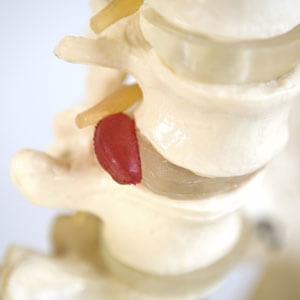Disc Issues in Bentleigh East

Struggling With a Disc Bulge or Herniation? You’re Not Alone
Disc issues don’t always come from a major accident. In fact, many people in Bentleigh East develop bulging or herniated discs after years of poor lifting technique, sitting too long, or minor repetitive strains they barely notice at the time. It’s not until the pain becomes sharp, persistent, or radiating that they realise something more is going on.
We’ve seen people trigger a flare-up just bending to pick up a pen. The truth is, most disc problems develop gradually, weakening the outer layers of the disc until one day, it pushes out or tears. Left unaddressed, this may cause chronic back pain, sciatic symptoms, leg numbness, or even loss of mobility.
Common Types of Issues We See
While every case is different, we regularly support patients with:
- Bulges or protrusions
- Herniated or prolapsed discs
- Degenerative disc changes
- Post-surgical spinal recovery
Sometimes, these problems also coincide with arthritis, degeneration of the spine or nerve pressure. A thorough assessment helps us understand what’s driving the pain and how to manage it effectively.
A Down-to-Earth, Hands-On Approach
First, we take the time to listen. We gather a complete history, perform physical testing, and check for neurological signs like changes in reflexes, muscle strength, or sensation. If needed, we’ll refer you for imaging or suggest consulting your GP for pain support.
Our aim is always to help you feel better as soon as possible, while also promoting long-term spinal health. Chiropractic adjustments may help ease nerve irritation and improve joint mobility. We’ll also show you posture modifications and strengthening strategies to reduce pressure on the discs.
“Even chronic disc conditions can respond well to the right kind of care, says Dr Anthony. ” You’ve got to give it time and consistency and often see great results for the patient.”
When Will I Feel Better?
The short answer: it depends. If the issue is recent and mild, many people feel some relief within the first week or two. For others, especially with long-term degeneration, we typically allow about six weeks to evaluate progress. It doesn’t always mean the disc has fully healed, but improved comfort, mobility, and daily function are realistic goals for most.
Surgery is rarely needed. In fact, research shows most people with disc issues improve without it. Even though surgery is very rare, if it is warranted, we’ll help guide you to the right professionals and support you during your recovery.
Tips for Disc-Friendly Living
It’s not just what you do; it’s how you do it. We encourage avoiding twisting or bending while lifting, sitting for long periods (especially on soft chairs or lounges), and high-impact, jarring movements (like trail rides or trampoline parks).
We’ll show you how to adjust your movement, support your spine, and build abdominal core and low back strength over time.
Reclaim Your Comfort. Reduce the Pressure.
Disc issues can be frustrating, but you’re not stuck. Take the next step toward lasting relief with East Bentleigh Health Group.

